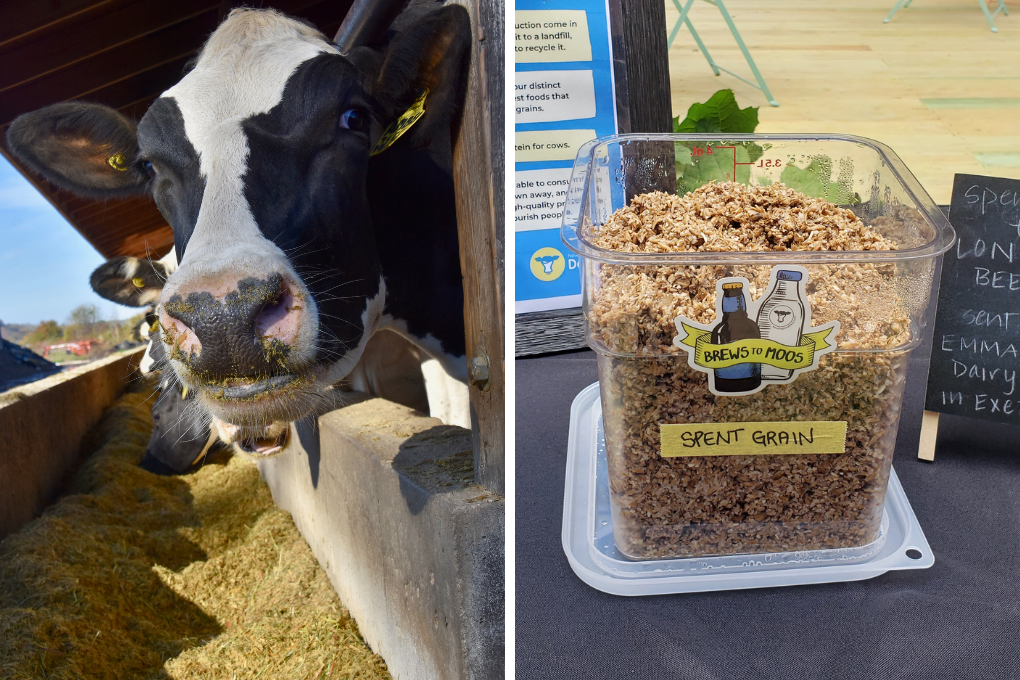Dairy farmers work with nutritionists who create healthy, balanced diets that are specific to the cows’ needs – based on their age, whether they’re milking, whether they’ll soon have a calf, and many other factors. Some dairy cows eat as much as 100 pounds of food per day. The ingredients often include human food byproducts, grain, a mixture of grass hay, alfalfa hay, as well as corn and grass silage that is grown on the farm.
Dairy cows are ruminants, with four distinct compartments in their stomachs to digest food. That means they can eat and unlock the energy and nutrients in foods we can’t eat. Up to 75% of a cow’s diet is not consumable by humans. Food companies, retailers, and restaurants can partner with dairy farms to recycle food scraps that are inedible to humans, avoiding landfills or incineration. Byproducts like citrus pulp, almond hulls or spent grains from breweries can all be part of a dairy cow’s diet. Dairy cows really are the ultimate recyclers.

